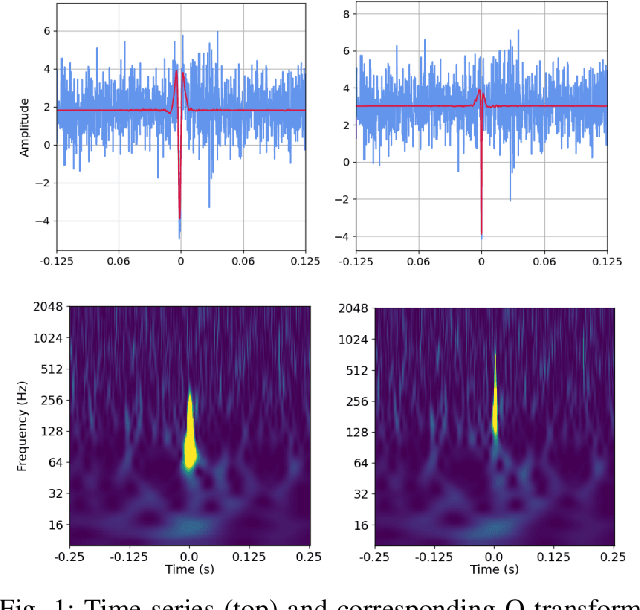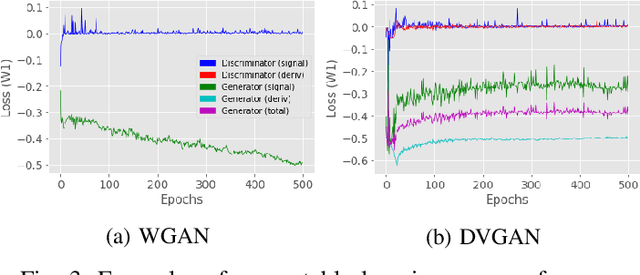DVGAN: Stabilize Wasserstein GAN training for time-domain Gravitational Wave physics
Paper and Code
Sep 29, 2022



Simulating time-domain observations of gravitational wave (GW) detector environments will allow for a better understanding of GW sources, augment datasets for GW signal detection and help in characterizing the noise of the detectors, leading to better physics. This paper presents a novel approach to simulating fixed-length time-domain signals using a three-player Wasserstein Generative Adversarial Network (WGAN), called DVGAN, that includes an auxiliary discriminator that discriminates on the derivatives of input signals. An ablation study is used to compare the effects of including adversarial feedback from an auxiliary derivative discriminator with a vanilla two-player WGAN. We show that discriminating on derivatives can stabilize the learning of GAN components on 1D continuous signals during their training phase. This results in smoother generated signals that are less distinguishable from real samples and better capture the distributions of the training data. DVGAN is also used to simulate real transient noise events captured in the advanced LIGO GW detector.
 Add to Chrome
Add to Chrome Add to Firefox
Add to Firefox Add to Edge
Add to Edge